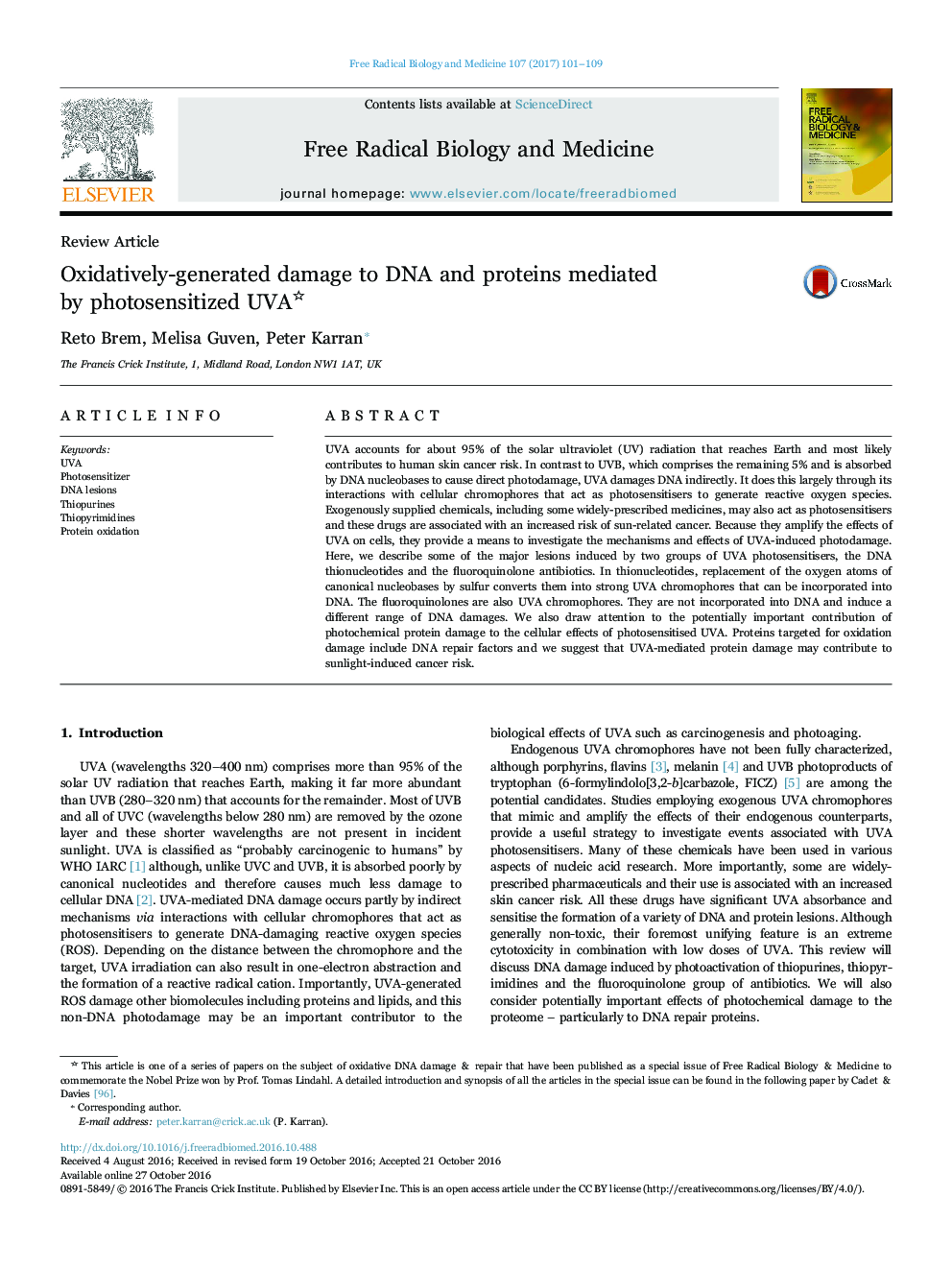| Article ID | Journal | Published Year | Pages | File Type |
|---|---|---|---|---|
| 5501810 | Free Radical Biology and Medicine | 2017 | 9 Pages |
â¢Some medicines are UVA photosensitizers in patients and in cultured cells.â¢Their use is associated with an increased risk of sunlight-related skin cancer.â¢When combined with UVA they cause DNA damage in an oxygen-dependent manner.â¢These combination induce a wide variety of DNA lesions in cultured cells.â¢They also cause oxidation damage to proteins that impair cellular DNA repair capacity.
UVA accounts for about 95% of the solar ultraviolet (UV) radiation that reaches Earth and most likely contributes to human skin cancer risk. In contrast to UVB, which comprises the remaining 5% and is absorbed by DNA nucleobases to cause direct photodamage, UVA damages DNA indirectly. It does this largely through its interactions with cellular chromophores that act as photosensitisers to generate reactive oxygen species. Exogenously supplied chemicals, including some widely-prescribed medicines, may also act as photosensitisers and these drugs are associated with an increased risk of sun-related cancer. Because they amplify the effects of UVA on cells, they provide a means to investigate the mechanisms and effects of UVA-induced photodamage. Here, we describe some of the major lesions induced by two groups of UVA photosensitisers, the DNA thionucleotides and the fluoroquinolone antibiotics. In thionucleotides, replacement of the oxygen atoms of canonical nucleobases by sulfur converts them into strong UVA chromophores that can be incorporated into DNA. The fluoroquinolones are also UVA chromophores. They are not incorporated into DNA and induce a different range of DNA damages. We also draw attention to the potentially important contribution of photochemical protein damage to the cellular effects of photosensitised UVA. Proteins targeted for oxidation damage include DNA repair factors and we suggest that UVA-mediated protein damage may contribute to sunlight-induced cancer risk.
Graphical abstractDownload high-res image (122KB)Download full-size image
